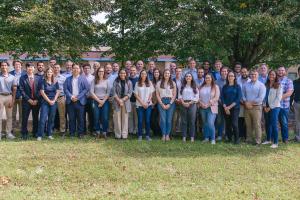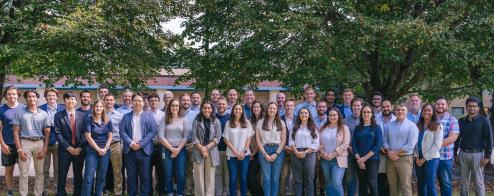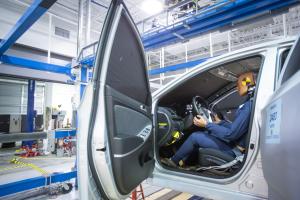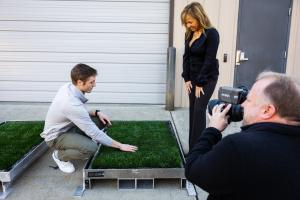
Injury Prevention
As the largest university-based injury biomechanics laboratory in the world, the center specializes in impact biomechanics for injury prevention. Started by NHTSA back in 1989, the center now operates out of a 30,000-square-foot facility located in the University of Virginia Research Park. It is recognized as one of the world’s leading research groups in the field, using state-of-the-art equipment to analyze the intricacies of how the human body responds to injury.
Research
-
Military
One of the main goals of the CAB is to increase soldier survivability and performance. Our research runs the gamut from blunt trauma to ballistics and blast.
-
Computational
Working within the CAB experimental efforts is a computational research program with expertise in finite element (FE) modeling and multibody (MB) mechanics.
-
Sports Biomechanics
Researchers at CAB apply knowledge of biomechanics, experimental design, and computational modeling to understand and mitigate sports injuries.
-
Medical
CAB conducts research to improve post-event response and trauma care with the goal of improving chances for survival and minimizing, if not preventing, prolonged disability or impairment.
-
Epidemiology
Epidemiology is the basic science for public health and complements biomechanical injury research in its fundamental pursuit to understand the cause(s) and mechanism(s) of injury.
Quick Links



